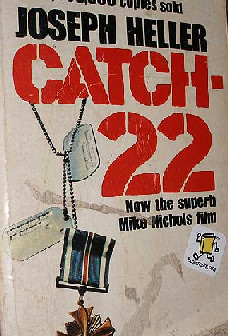 THE BROTHERS KARAMAZOV by FYODOR DOSTOYEVSKY
THE BROTHERS KARAMAZOV by FYODOR DOSTOYEVSKYThis book is seen many times throughout the 2nd season. First as Henry Gale (Ben) is in the hatch he asks for something to read and Locke hands him this book, while Ben asks for Stephen King. Also, Henry Gale (Ben) uses the cover page to draw a map to his balloon. All of these things with the balloon and Henry Gale will be covered in my next few posts as I intend to tackle the Wizard of Oz. As for this book, as many classics, I have noticed, it gets hard to fight through the language barrier, and Dostoyevsky, though a very incredible author, seems to make things hard on the reader with his charcter names being somewhat confusing. However the social, philosophical and religious themes this story tackles make this book very powerful. Hmmm, doesn't lost tackle some of those similar themes. Let us Explore the similarities a bit, shall we?
Similarities in brothers Karamazov
- Smyrdnakov is coerced into killing his father very much like sawyer was with Locke.
- Ivan writes a prose story about Christ being reborn. When he is reborn the church puts him into prison because when he was tempted by Satan he showed the world that they had free-will. According to Ivan, nothing is more insufferable than Freedom. There are many free-will debates on LOST
- Alyosha joined a monastery and then is told by the head monk to leave because he had a greater calling in life; that he was set to do bigger things in the outside world. This is a very similar situation as to Desmond.
- Alyosha also meets the love of his life while in the monastery, also similar to the Desmond back-story.
- Alyosha has a situation where he runs to defend a boy who is getting beat up by bullies and ends up getting hit for it. It may be a bit of a stretch but Jack also had that happen in a flashback episode for him.
- The whole idea of patricide is a very strong theme in LOST, and the karamazovs end up killing their father. Ben, Locke/sawyer, and Kate all literally killed their fathers. Jin told everyone his father was dead, thus killing him socially and in a round about way. Jack destroyed his father’s career by testifying against him in his malpractice hearing, consequently sending his father to Australia where he met his death.
- Locke is in a wheelchair due to an accident prior to the crash and alyosha’s love Lise is too in a wheelchair.
- Father Zosima is a very similar character to Eko. He becomes a priest mostly due to his brother’s involvement in religion and subsequent death. Father Zosima becomes a priest as a form of atonement for a wayward youth and as a promise to his brother at his deathbed. Eko too promises his brother to build him a church.
- Father Zosima tells Alyosha that he reminds him of his brother. . . or brotha. As I have already shown that Desmond and Alyosha are similar, Zosima tells Alyosha that he has a very important job to do outside the monastery (pushing the button) and also to save a brother, Mitia, who has lost his way.
- Mitia, through many experiences with people letting him down and deceiving him, has lost his faith in humanity. Locke is very similar to Mitia in this respect. Also they ae similar in their pfilosophies and eventually both have break downs saying their lives have been worthless in pursuit of a errant purpose, Mitia with love and morality, Locke with Pushing the button.
- Finally both come to the realization that they were wrong but it is too late the damage is done, Locke lets the hatch implode and Mitia in killing his father.
- It has already been discussed, the fact that Eko and Locke are polar opposites. In my opinion Eko is Zosima and Locke is Mitia.
- The Manner in which Zosima dies is similar to Eko. Both say a Psalm and raise their arms to the sky. In the book this is said to mean and acceptance of the nature and beauty of the world and a form of relief that it is over and that Zosima is pure and ready. I can only guess that Eko is of the same mindset.



